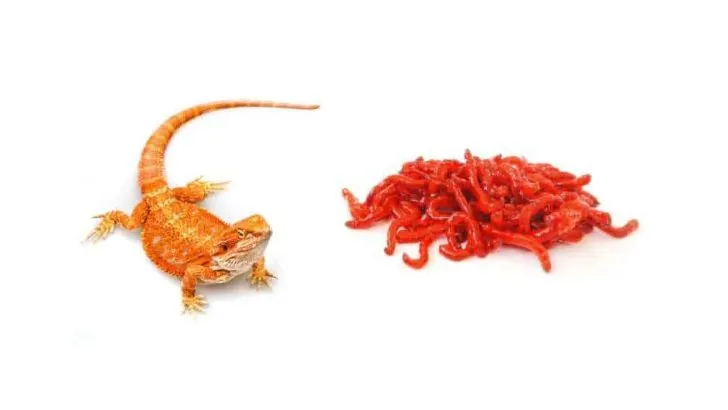Every bearded dragon owner knows that worms are a regular part of their pet’s diet. Which type of worm, is a different question, though. Since they are not something we humans consume or even come in contact with daily, it is completely normal to wonder whether a certain kind of worm is safe for your reptile.
Knowing the specifics of each type of worm, to know if your beardie can eat it, probably isn’t something you signed up for when you became an owner. But you shouldn’t worry, I’m here to tell you all that you need to know when it comes to the question – Can bearded dragons eat bloodworms?.
Let me tell you right away, bloodworms can be consumed by bearded dragons, but they might not be the best choice for them, especially compared to other available options.
So, before you serve your beardie a nice bowl of worms, here are some things you should know when deciding whether or not you should throw bloodworms into the mix. Keep reading to find out!
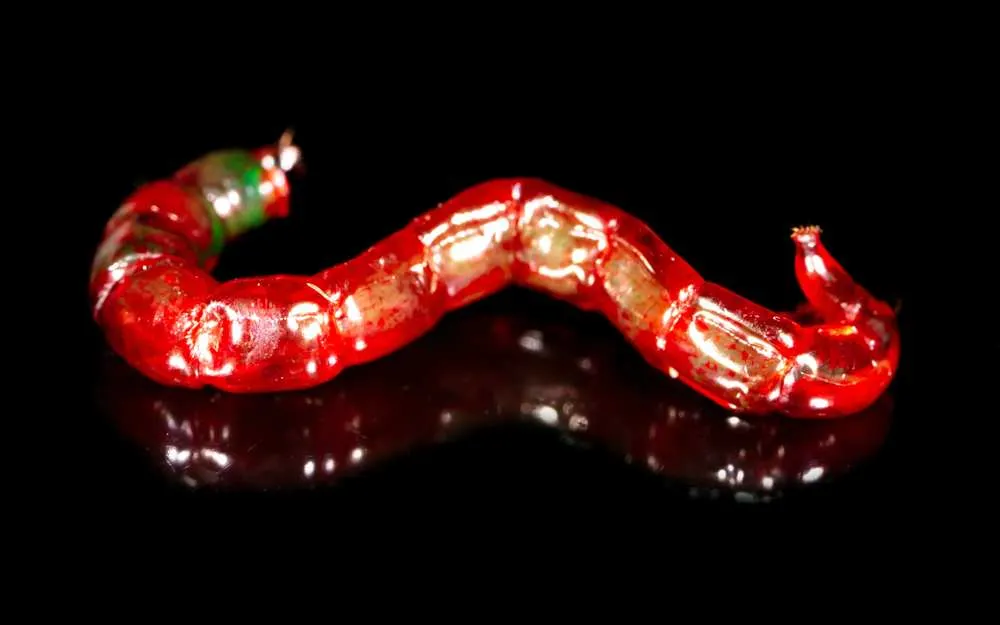
Opening Up A Can Of Worms
As you might know, there are many kinds of worms (probably more than I would like there to be). Each of them has a different composition, which would make some food that your beardie would benefit from, while others, a big no-no. I am here to tell you which category bloodworms fall into.
Let’s get into it!
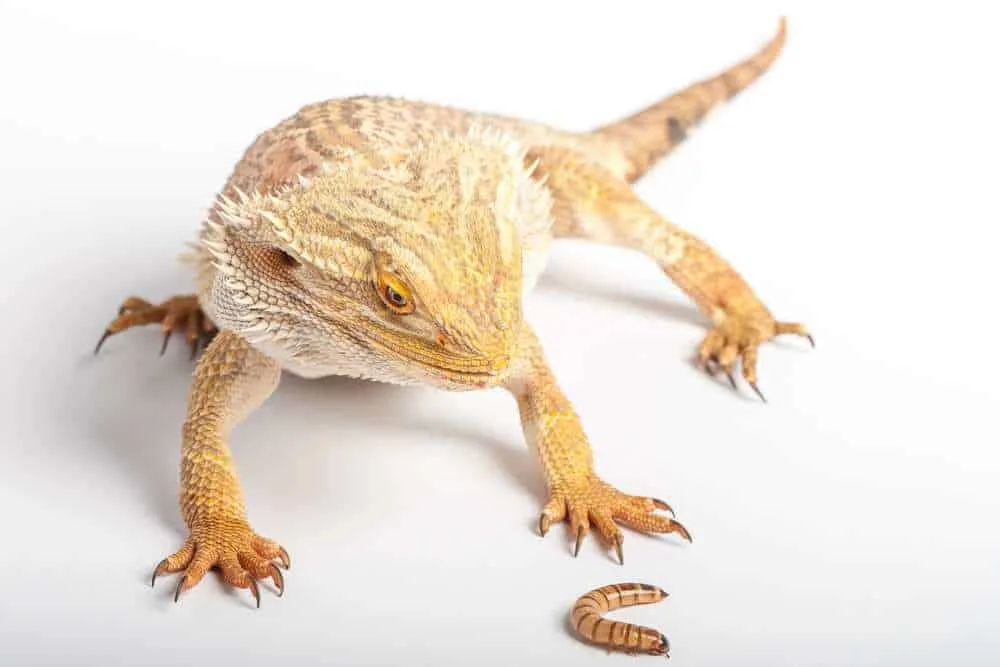
How Well Do Worms And Bearded Dragons Get Along?
As owners of these little reptiles, we know that some worms should definitely be a regular part of their diet on a day-to-day basis, and others should be avoided. However, the type of worm that you give to them might vary depending on the age of your beardie and its general health.
1. Mealworms
Mealworms are a type of worm that has been a very popular food for bearded dragons, and for a reason – beardies love them. However, few things speak in favor of this, and many would indicate otherwise.
Mealworms are very high in fat and phosphorus and can be very addictive to your dragon. Besides that, they have a hard outer shell (“chitin”) which can be difficult to digest for young bearded dragons.
With all this in mind, unless your beardie is malnourished and needs to gain fat quickly, my advice is to leave this worm out of your beardies bowl.
2. Butterworms
Butterworms are a type of worms that should be a part of your bearded dragon’s diet only as an occasional snack. Similar to mealworms, they contain lots of fat, so feeding them to your pet could easily lead to obesity.
However, if you do decide to treat your beardie to this snack that they love so much, make sure you do so only to adult ones. Their size and fat contents make them a bad food choice for growing beardies.
3. Hornworms
Hornworms are a great addition to your beardies diet since they contain a good amount of protein, but a small amount of fat. Adult bearded dragons can consume from 3 to 5 mature hornworms, and between 8 and 20 immature ones a day.
Keep in mind, though, that you shouldn’t rely only on these worms for feeding your beardie, since they do not contain all of the nutrients they will need to stay healthy.
4. Superworms
Superworms are considered to be a healthier option than mealworms because they contain a relatively satisfactory amount of protein and a slightly lower fat content than them.
With that said, they are still quite low on calcium which is something bearded dragons need, and the fat content isn’t ideal, so you should opt for them as a snack your beardie will enjoy once or twice a week, rather than as a staple part of their meals.
5. Phoenix Worms
Phoenix worms are high in protein and calcium, but low in fat, making them a wonderful choice for your beardie. These great ingredients help make sure your bearded dragon is strong and healthy.
6. Silkworms
Silkworms are tiny, but extremely nutritious insects. They contain iron, magnesium, protein, vitamins B1, B2, B3, and sodium. Their body is soft, which means they are easily digested. They are also a great option for young bearded dragons.
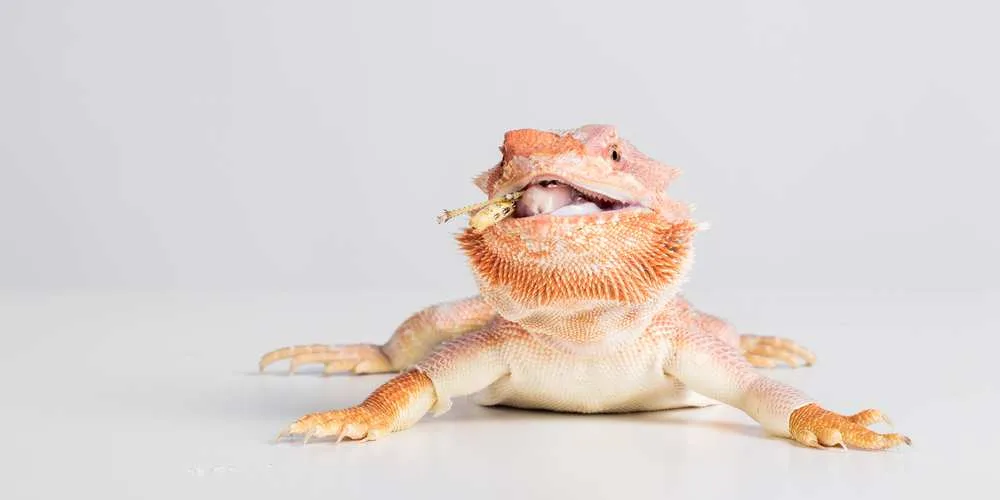
What Else Should Your Bearded Dragon Eat?
Aside from worms, there are plenty of other foods that your reptile should be eating, since they need a diverse diet to get all of the nutrients they need.
Here are some options for you!
1. DUBIA ROACHES
DUBIA ROACHES are one of the foods that are a must in the diet of every bearded dragon. Their protein-fat ratio makes them an ideal choice. They also contain a wide variety of other nutrients that will make sure your bearded dragon is happy and healthy.
They come in different sizes, according to their maturity, which makes them convenient for feeding beardies of all ages.
Along with that, they are also convenient for us, owners. They are easily stored, easy to breed, and are not as smelly as some other insects your bearded dragon likes to munch on. This is why they are some of my all-time favorites when it comes to beardie food!
2. CRICKETS
CRICKETS are one of the most popular foods for bearded dragons. Their nutritional value is great and they do not contain a lot of fat. Also, your beardies love the taste of some fresh crickets, which is a great bonus.
What makes them a little less loved by some owners, is the fact that they can get a bit smelly, but some are willing to ignore that minor inconvenience because of all the benefits they have.
Another thing to be wary of is that some parts of the cricket can be difficult for bearded dragons to digest, as they can be quite hard (hind legs for example).
Bearded dragons can also eat a pretty wide range of fruits, vegetables, and greens, which are readily available to most owners because they are usually a staple part of many people’s everyday diet.
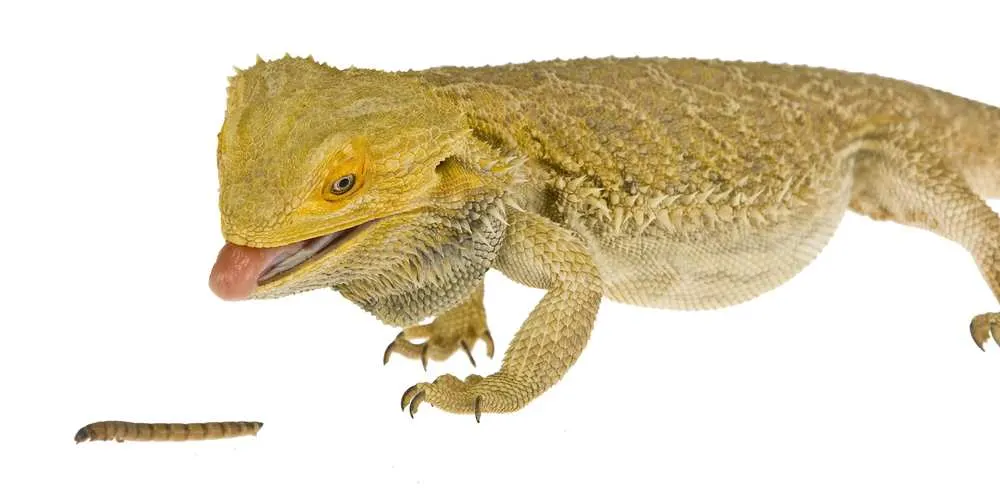
Can Bearded Dragons Eat Bloodworms?
We’ve learned that many types of worms are okay for bearded dragons to eat, with some being better options than others. But what about the reason you’re here in the first place – bloodworms?
As with many other kinds of worms, there are good and bad sides to it, and the opinions among owners differ on this, as well.
Their protein content can be considered satisfactory, which is something you should look for when searching for foods to feed your beardie.
Protein should make up about 20% of an adult bearded dragon’s diet, with the rest consisting of greens, with some fruit, vegetables, and other treats here and there.
Their fat content is lower than that of mealworms but higher than others, like phoenix worms. This makes them neither here nor there when it comes to the fat spectrum of worms.
Some owners would say that you should avoid bloodworms, not necessarily because they are bad for your dragons, but because they have nothing interesting to offer while having an equal, or even higher fat content than other worms, without so much as a fragment of the benefits.
Others say, why not – there’s really no harm in an occasional bloodworm for an otherwise healthy beardie.
Another would say that you could try and see how it goes, it depends on the beardie.
I would say that all of these are somewhat true, but a bloodworm here and there won’t hurt if your beardie enjoys them.
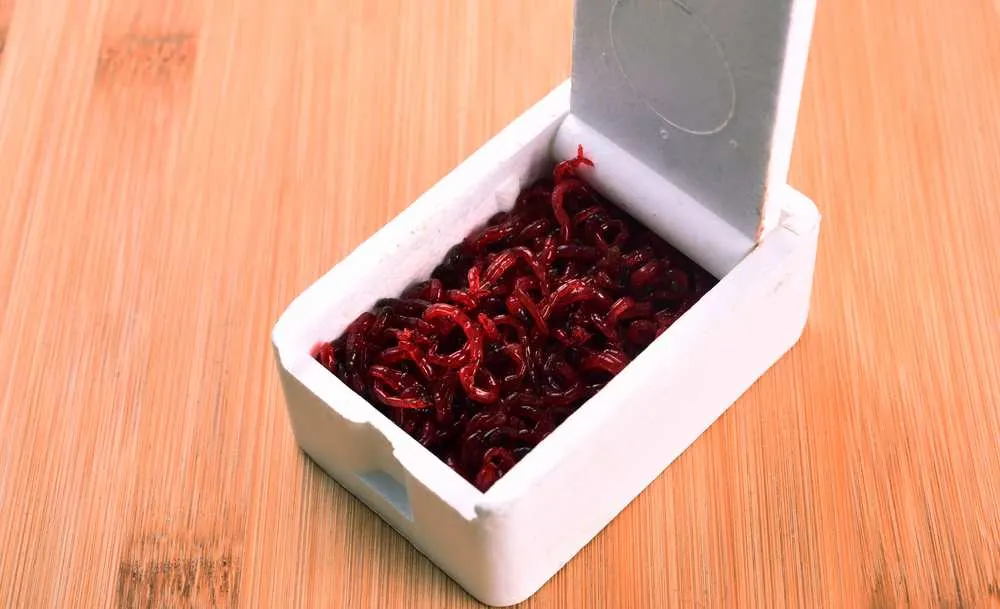
The Summary
Finding food that your beardie will enjoy isn’t exactly a difficult task, some of them will eat almost anything. This makes purchasing new foods for them pretty much a hassle-free task. So, if you come across a packet of bloodworms while browsing the web for something new to order for your beardie, here is the summary of what you should know!
Bloodworms are a type of worm that will neither benefit nor harm your bearded dragon. Their nutritional content isn’t outstanding in comparison to other types of worms, and they also aren’t the worst option you can choose either.
But, if you really want to treat your beardie with a snack that is both healthy and delicious, maybe opt for Phoenix worms or hornworms, rather than a bloodworm. Your bearded dragon will enjoy it much more!
Now that you got all the needed knowledge on bloodworms and bearded dragons, I’ll leave you to get some quality time with your beloved lizard. But keep in mind, there are much better options than bloodworms!
Read Also: Can Bearded Dragons Eat Blue Belly Lizards?

